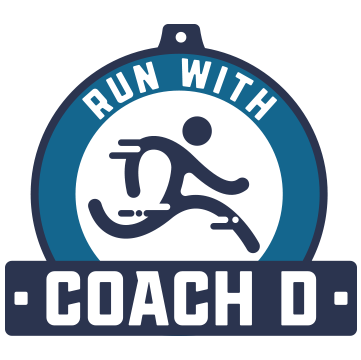Why am I doing this: The Long Run
Either you look forward to it, or you dread seeing it in your weekend workouts: The weekly long run. It’s a staple of training for most runners racing above the 5k (even then it can still be good for 5k and under athletes). But why do it? Why have to carve out 1-2.5 hours of your weekend to just slog some miles that mostly are slow?
Your long run’s main purpose multiple:
Helps develop mitochondria (your muscles mini power plants) in your running muscles and capillaries get increased blood flow to your running muscles/
Develops your cardio efficiency
Increases your body’s ability to use muscle and liver glycogen (your body’s carb rich fuel sources)
Builds your running muscles and injury resistance
Build mental and physical toughness for longer running and time on feet
Overtime increases your body’s ability to use fat as an fuel source
Kind of worth it right? Long runs are meant to push our running bodies to new limits so that come race day we have the physiological and mental ability to conquer it. Taken in a general sense it’s easy to see why we do long runs, but how we set them up is a bit tricky; and like a lot of things…it depends.
There are many coaches who have differing philosophies on how much you should do and how fast. We won’t dive into that here, that’s meant for a longer blog post down the road. But if you’d like to try going a little longer than your routine distance, keep it simple by just adding another 10-15 min onto your longest run of the week. For most new or intermediate runners that will probably be enough starting out to build some new fitness. After 2-4 weeks, if it feels easy try adding another 10-15 min to your longest run. No rocket science, but a good way to start.
The pace of long run’s also depends. Most of my athletes start with simple but effective long easy runs; but over time they get to play around with threshold paces, marathon or race specific paces, or even hard interval paces. All this is contingent on what race you're training for and where you are in your season of training. Again, when in doubt keep it simple and easy.
One of the biggest benefits of long runs is their ability to stress our legs like it’s the end of our race and to practice our race hydration and fueling. You’re body is awesome at adjusting to the demands you put on it, so if you run long enough that you find a wall similar to what you’ll feel in the last 10k of your marathon or 5k of your half, guess what? You’ll be stronger and better able to manage those thoughts and feelings of fatigue. Your stomach is also really good at taking in nutrition, especially if your practice. For anyone running a marathon or most racing a half, you need fuel to keep your body moving and fatigue at bay. By taking in nutrition on our long runs, we can train our bodies to handle increasing amounts of carbs for more energy in our race. In fact, recent studies have shown elite marathoners can take in as much as 80g of carbs per hour! They had to work up to that number by practicing their nutrition in the long run.
We can talk about this for a novel's worth of detail, but really it’s simple. Long runs are important because they prepare your body for what it will have to go through and take in on race day. So next time you see a long run programmed for you, say thank you…instead of f*** you :)
Happy Running
Coach D

